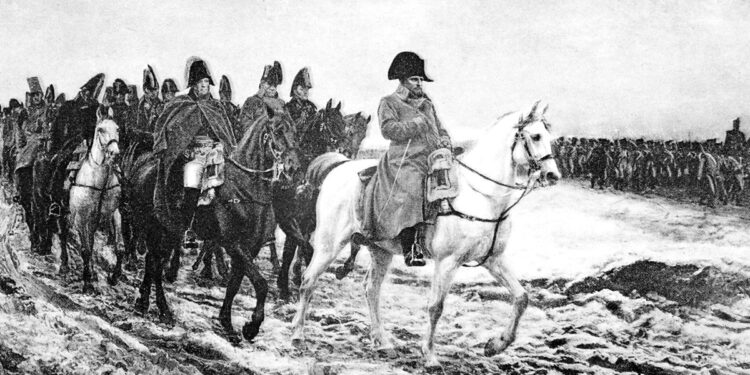In the early 19th century, Napoleon Bonaparte embarked on a disastrous military campaign by invading Russia in 1812. This ill-fated expedition marked a turning point in Napoleon’s empire and eventually led to his downfall. Let us examine the events that unfolded during this momentous campaign.
Tensions between Napoleon and Tsar Alexander I of Russia, coupled with economic disputes and Napoleon’s ambition to dominate the East, set the stage for the invasion. In June 1812, Napoleon assembled an enormous army of over 600,000 soldiers from various nations under his rule.
Initially, the French army made rapid progress into Russia, facing little resistance. However, as they advanced further, they encountered a scorched earth strategy employed by the Russian military. The retreating Russians destroyed essential supplies, including crops, livestock, and infrastructure, leaving the invaders without the resources they needed to sustain their forces.
The critical Battle of Borodino took place on September 7, 1812. It was the bloodiest day of the Napoleonic Wars, resulting in heavy casualties on both sides. Although the French emerged victorious, the battle significantly depleted their resources and weakened their forces.
After occupying Moscow in September 1812, Napoleon’s hopes for a decisive victory were dashed. With winter approaching and supplies dwindling, the French Emperor made the fateful decision to retreat. The Russian winter proved brutal, inflicting further suffering on the already exhausted and ill-prepared French army. Russian attacks, coupled with the harsh weather conditions, resulted in immense losses, with only a fraction of Napoleon’s army managing to escape the Russian campaign.
The invasion of Russia had dire consequences for Napoleon’s empire. The loss of life, resources, and prestige dealt a severe blow to his power. The campaign marked the beginning of his decline and eventually led to his defeat in 1814, as other European powers capitalized on his weakened state.
newshub



Recent Comments